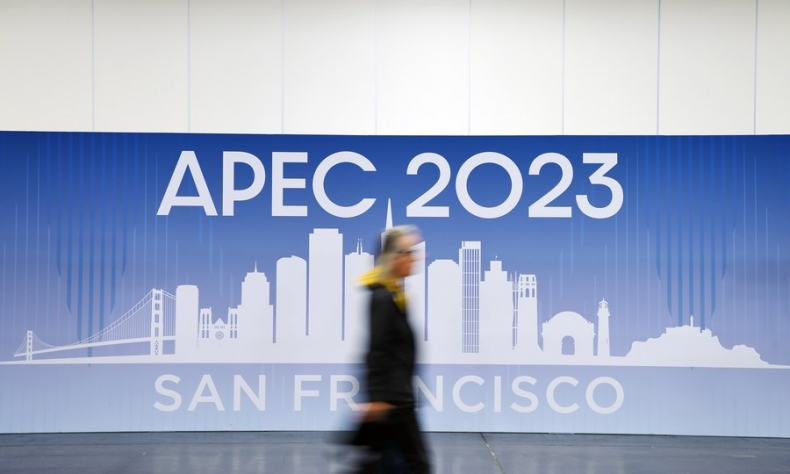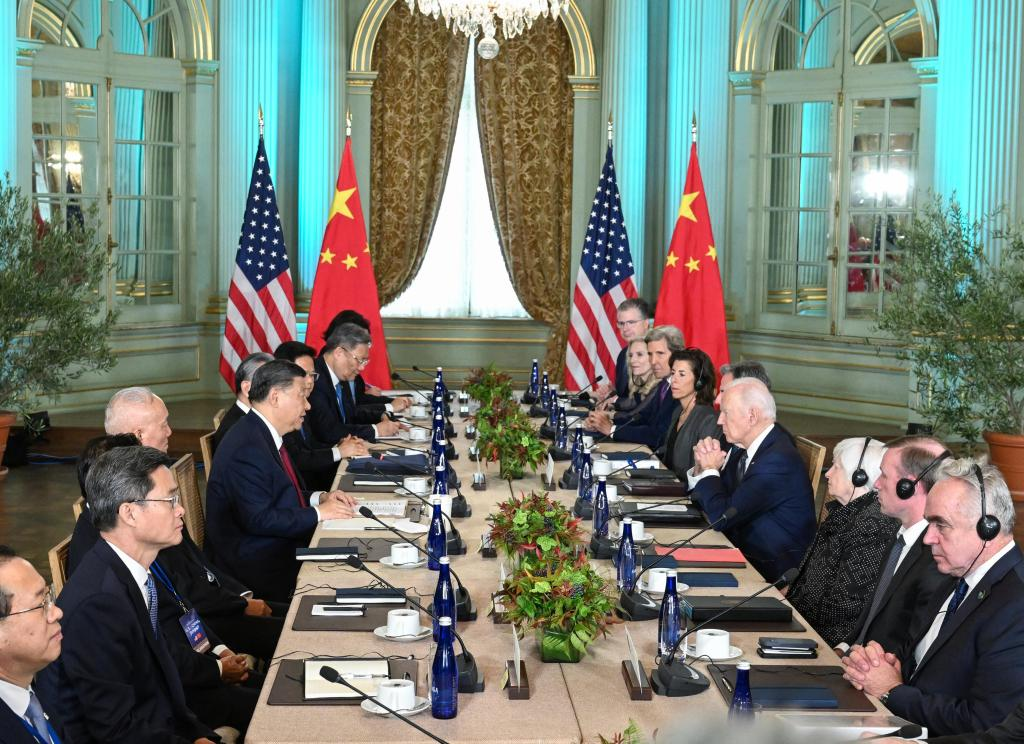In Sum: the Xi-Biden Summit

The meeting was important in setting a floor for relations that have been festering and deteriorating for years, and in identifying concrete issues for urgent consultation and action while the current Biden administration is in office.
The summit between Chinese President Xi Jinping and U.S. President Joe Biden at Filoli Estate, a country house approximately 40 km south of San Francisco, California, on November 15 has been characterized as one of low expectations—which were fully met. While it is impossible to predict the course of the Sino-American relationship beyond January 20, 2025, or the next U.S. presidential inauguration, the meeting was important in setting a floor for relations that have been festering and deteriorating for years, and in identifying concrete issues for urgent consultation and action while the current Biden administration is in office.
The most concrete outcome of the leaders’ summit was the resumption of multi-level cooperation in several areas that had previously been suspended due to bilateral estrangement.
Some of this suspended cooperation dates back to Donald Trump’s presidency. Other deferred forms of collaboration are more recent, mostly following then U.S. House Speaker Nancy Pelosi’s ill-advised and ill-conceived visit to China’s Taiwan region in August 2022.
Pelosi’s trip violated the Shanghai Communiqué (a diplomatic document signed by both countries and issued in 1972) and all subsequent U.S.-China agreements that have defined the bilateral relationship for half a century.
The most important agreement reached during the Xi-Biden summit was the resumption of military-to-military communication, most especially direct telephone communication between Chinese and U.S. theater commanders. This agreement also includes the resumption of Defense Policy Coordination Talks and Military Maritime Consultative Agreement meetings between the two countries.
As the San Francisco summit proved, in-person communication, even very straightforward communication, is far preferable to objectifying the other side and assuming worst-case scenarios in the absence of facts and ongoing feedback.
The resumption of direct communication and face-to-face meetings between the two militaries will be conducive to the resolution of actual and potential military situations.

Another important outcome was the renewal of previous bilateral cooperation to combat global illicit drug production and trafficking, particularly that of synthetic opiates such as fentanyl. China and the U.S. had been actively working together to combat this plague, but cooperation had fallen victim to the deterioration of bilateral relations. As agreed at the summit, a working group was established to ensure ongoing communication and law enforcement coordination on counternarcotics issues.
Fentanyl is a lab-made opioid prescription drug, administered under tightly controlled conditions, that tames severe pain, such as from cancer, that other painkillers can’t alleviate.
In the absence of bilateral cooperation, the drug turned killer when fentanyl manufactured by illegal labs using precursor chemicals, many from China, entered the illegal street market. Last year, 73,654 people in the U.S. died from fentanyl overdoses alone, more than seven times the number in 2015.
Climate change was also on the summit agenda, and became another area where Xi and Biden pledged more bilateral cooperation. The 28th Conference of the Parties to the UN Framework Convention on Climate Change will take place in Dubai, the United Arab Emirates, from November 30 to December 12. Horrific and often unprecedented weather disasters are evidence that global warming is leading to more extreme weather events, causing more death and destruction. UN Secretary General António Guterres recently said, “The era of global warming is over; the era of global boiling has arrived. The air is unbreathable. The heat is unbearable. And the level of fossil fuel profits and climate change inaction is unacceptable.”
Although artificial intelligence (AI) has been with us since 1956, generative AI, such as ChatGPT, is a new phenomenon. But like fire, AI can be used as a tool for good, or as a weapon for destruction.
Some reports anticipated that the Xi-Biden summit would include some sort of jointly agreed ban on the use of AI in the decision to deploy nuclear and other weapons systems, given AI is still riddled with imperfections.
Yet the only mention of AI in the readouts was to continue talking about the need to address “the risks of advanced AI systems and improve AI safety through China-U.S. government talks.”
This is obviously a first step and I hope that the world’s two leading countries in terms of AI research and technology will show leadership that goes beyond defense issues to the existential issues that AI poses.
Predicting the future 14 months in advance is a fool’s errand. But looking at the positive results of the bilateral summit, as well as the Asia-Pacific Economic Cooperation Economic Leaders’ Meeting and related activities, which run in San Francisco from November from 11 to 17, I continue to be cautiously optimistic in the near term.
 Facebook
Facebook
 Twitter
Twitter
 Linkedin
Linkedin
 Google +
Google +






